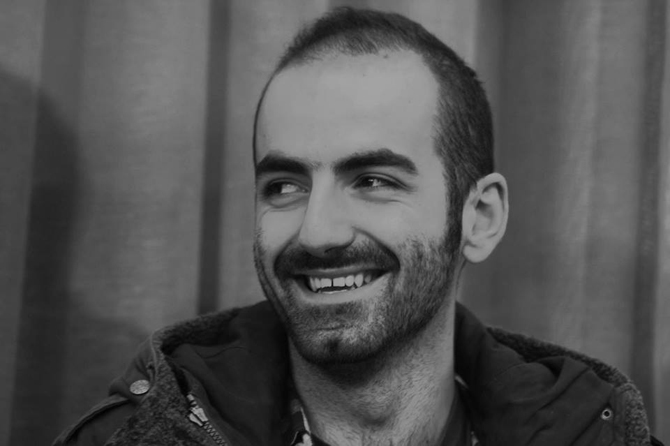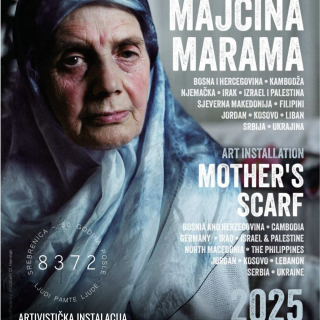Does it penetrate into the human consciousness that when a big war happens, it is always followed by smaller wars? Does the Albanian people ever pause and think that after seeing the blood flooding the alley of horror at the Reçak Massacre, after having been a target of war from another state, after many similar other scenarios, that it went through the wars of mind, through the collective trauma, the pressure, only to face what the other party left behind when it went away after all the butchering?
Bauman writes that modernity and perfection of means allow the wars. The (in)sane mind of victims seeks the trauma of facing the war, as they seek peace as much as they seek to know themselves after a strong shock.
****
In the previous blog I mentioned briefly the culture, the movies and the cinematography. At war, people are violated. This happens for several reasons. Firstly, violence breaks down the morale of the person being violated. Is this not the main aim of the perpetrator of violence? Secondly, violence causes pain; not just immediate and physical pain. Later, it is not just an individual being violated by another one, but it is an ideology being violated by another one, a regime being violated by another one, or a person’s blood being violated by another one. It is a state exercising violence and absolute power towards another one.
When it becomes known that some of the women in the village have been raped, men go crazy and they rush to be the first to conceal the truth of what happened. Lusha is a teacher and the exposes her secret. She is then forbidden from teaching, from exercising her sacred mission of a teacher. Then she encounters problems with her spouse, with her family. She is not allowed to go to celebrations or mourning gatherings. Lusha is every woman raped by the Serbs during the last war in Kosovo.
This is the success of the “other”. The “other” wanted us to see the raped women as the ones who are guilty. We have rarely faced these women, who were harmed against their will. The regime wanted this to happen during the war. Still nowadays we do not speak much about these women. We only speak when someone opens the debate, which nonetheless lasts for a few seconds. We do not protest for them as much as we do for our stately men. We have not yet faced them in the eye. In fact, they should face us – because we did not let them tell the truth that would liberate them from what happened, which who knows how often comes alive in their nightmares. No, they are not guilty for what happened to them. And yes, we often act as if we were in peace we would not stop the rape.
Film director Isa Qosja deals with this topic in his movie “Tri dritare dhe një varje” (Three Windows and One Hanging). The men of Kosovo do not admit that their women were raped by the men of another state. Go figure. These are men lacking the basic human emotions: empathy, love and even solidarity with the women. There is no pain on their behalf, no feelings of sorrow.
*****
The cinema is a good means of telling the truth to the world, enough to sensitize the people of the country where the war happened. It is necessary for a country that lived through war to have at least one movie that tells the truth. I do not know if we have a great movie about the war but our film directors, and foreign ones too, have attempted to tackle what has happened from various aspects.
Once we have documented history, we can slap our own faces with it, try to embrace it and face it. The movie “Shok” (Friend), which tells the story of two boys who keep their friendship under the circumstances of the war, was nominated for an Oscar a few years back. It is necessary to believe in something that keeps two friends together at times like that. The last seconds of the movie are not easy to watch.
However, facing the past needs the truth at its foundations. Otherwise, how can we permit the generations to come to understand this dark period of the Kosovo Albanians in 1998-99, which was concealed years ago? Facing is not forgetting. The forgetting was either never faced, or was faced through and through, from all sides.
The movie “Shok” is as necessary as it is painful. When Angelina Jolie decided to direct a movie about the war in Bosnia, she did not cut the scene where a baby is thrown out of a balcony in the middle of a freezing cold. In the movie “Shok” too, one of the boys – Oki, dies in the end from the gunshot of a soldier. It is easier for us to face when we know that what happened to us happened to others too because for each one of us the war had its culmination, the peak of cruelty. The actors Lum Veseli and Andi Bajgora, apart from their acting which does not need to much elaboration, have helped the children of today and of that time, who now are adults, to better understand their suffering, the emotions of horror and the fact that the war had no boundaries. Everything was permitted, everyone was violated and tortured. The war was not honest but the film and the film directors can and should be.
****
The movies and the actors do not let us forget. The memory is the collective of events that have happened. Someone went through those events, someone else did not. The film Festival in Sarajevo has created a special program for the movies that deal with the topic of facing the past. Since the Balkans is the land of blood – the most modern on this side of Europe, everything takes on more relevance. The movie “Kthimi” (The Return) by Blerta Zeqiri tells of the hysteria of a man’s returning and facing the fact that there is one more child at home, a child that is the result of rape.
Years ago the movie “Kukumi”, also by Isa Qosja, brought the madness of war and its consequences, which, if not talked about or analyzed, weigh more upon the victim’s shoulders and upon the victim people – the Kosovars.
A movie is a time capsule. A movie can tell the truths without any political interference. Personal histories, human narratives shall help us duel with our postwar psychology. John Udpike wrote in his diary that “each day we wake slightly altered, and the person we were yesterday is dead.” Perhaps we all died in the last war in Kosovo and today, awake, it would be good to face one of the saddest wounds and stories of the Kosovo people.
Arbër Selmani is a freelance culture journalist and writer from Prishtina. He is a Bachelor of Marketing and his areas of interest and engagement include cultural studies, multiculturalism, dealing with the past and LGBT issues. In 2013 he was chosen as the journalist of the year by UNWomen and UNDP.
Twitter: @arberiani




